Home > Blog > Antioxidant | Read Time: 10 minutes
You’ve undoubtedly heard the buzz about fish oil.
It’s true — fish oil is packed with omega 3 fatty acids, which are touted for boosting health in some big ways.
Plus, dogs can’t produce omega 3s on their own, so it’s crucial that there are omega 3s in your dog’s bowl.
So it sounds like fish oil is good for dogs, right? Well… sort of. It’s more complex than a simple yes/no answer.
The short answer….
Yes, fish oil can be hugely beneficial to your dog’s health, as long as you make the best choices when considering the options (we’re talking sourcing, toxins, sustainability, and more — we’ll cover it all).
But fish oil isn’t the only option. In fact, Dr. Bessent’s ultimate recommendation for omega 3s isn’t “fish oil.” There’s something even better.
Let’s dive in…
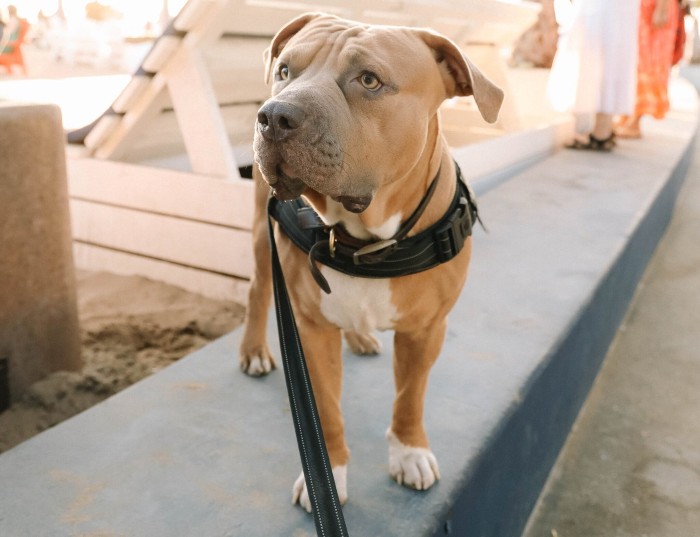
On the Agenda
What Really Is In Fish Oil
What is fish oil? Fish is a broad word — it’s like saying meat rather than chicken, beef, etc. What kind of fish are we talking about? And does it matter?

It definitely matters. It’s always important to know what you’re putting into your dog’s body (and yours!).
There are really two meanings of “fish oil.”
- A broad term used in marketing that encompasses all fish-based oils (some good, some not).
- A multi-species mixture of undefined sources
Let’s pause a moment on the second definition. With “fish” oil, it’s often impossible to know the source of the fish — which should raise a red flag. Some manufacturers pride themselves on using certain specific oils like salmon, but if the supplement just says “fish” oil, it could be sourced from any number of species of fish — sardine, herring, tuna, mackerel, anchovy, cod, or even blubber from whales and seals. Manufacturers in the U.S. and a few other countries often do report the species that go into their fish oil supplements, but many manufacturers do not (and are not required to do so). In fact, according to the U.N. Food and Agriculture Organization, 58% of fish oil is of non-specific species origin. It’s nearly impossible to be assured of quality, purity, and safety when the ingredients are so ambiguous.
Make the best choice: if you're going to use fish oil, always go for a pure known source - like anchovy, sardine, krill, etc.
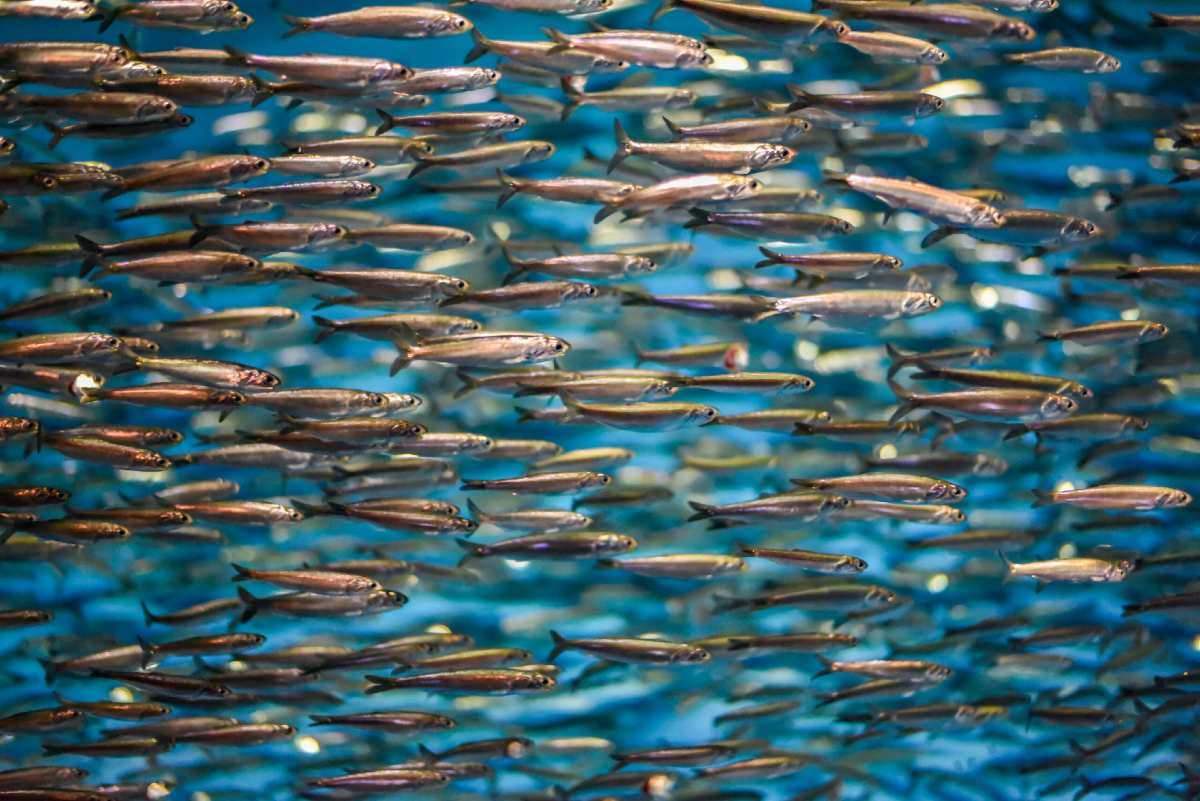
This should be written clearly on the bottle. Avoid the multi-species oils. Also, consider whole food sources as another great option for getting these vital omega 3s (and to clarify, a picture of a salmon on your kibble bag doesn’t count).
Why Omega 3s are Crucial
Before we dive any deeper… what’s the big deal about omega 3s anyway?
Well, omega 3s are essential for your dog’s health. As we learned above, dogs and cats can’t produce omega 3s on their own, which means it’s absolutely vital that you include omega 3s in their diets.
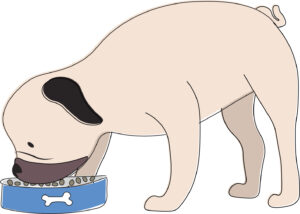
But what is the average pet diet? Kibble. Kibble provides the necessary macronutrients & micronutrients to sustain life and for basic survival (we’re talking fat, protein, fiber, vitamins, minerals etc.). But it’s a bare minimum. Omega 3s are expensive and not shelf-stable, which means that the vast majority of kibble manufacturers don’t include adequate amounts in the food they produce.
Kibble does include the much cheaper omega-6. While omega-6 is vital for your dog’s growth and development, it’s all about balance with omega-3. The ideal ratio of omega-6 to omega-3 is 5:1 (or even better, 1:1). But the majority of kibble-fed dogs receive a ratio closer to 20:1 (omega-6:omega-3). This high level of omega 6 (without enough omega 3) can lead to uncontrolled inflammation. Inflammation increases the probability of diseases — ranging from arthritis, to diabetes, to irritable bowel disease, and even cancer.
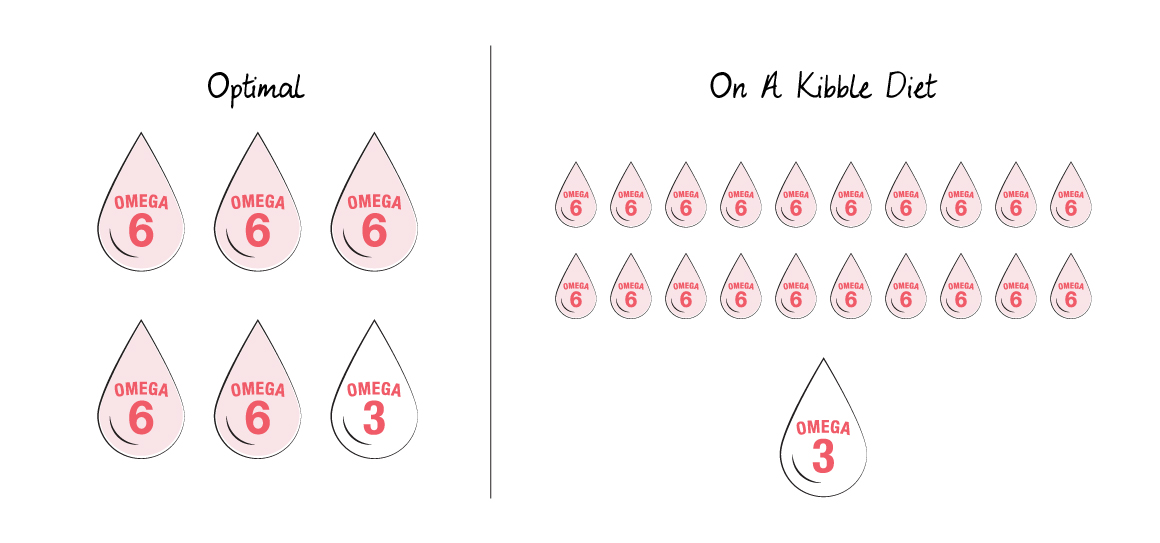
So adding omega 3s to your dog’s diet can help restore the balance, fight inflammation, and lower the risk of disease.
Omegas also have antioxidant properties. You’ve probably heard about antioxidants and might even make an effort to include them in your diet (here’s to you, spinach-lovers). As it turns out, dogs and cats can benefit from antioxidants just as much as humans!
Antioxidants fight cell damage known as oxidative stress. Oxidative stress can lead to premature aging and a variety of health problems. Luckily, antioxidants can fight this damage before it even occurs. And it’s simple to add antioxidants to your dog’s diet. (To learn more about why it matters, see “Why Prioritize Antioxidants for Dogs”).
Some antioxidants are produced within your cat and dog’s body, but fewer and fewer will be produced as they age. So, it becomes more and more important to add antioxidants as they age.
And we’re back full-circle to diet. What your dog eats is hugely important for overall health. You have the power to curate the bowl with nutrients your dog needs to truly thrive!
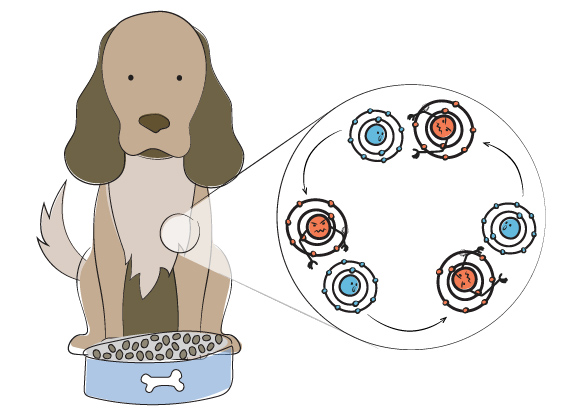
This is where supplements like fish oil come in. Fish oil is packed with omega 3s and it has the right kind of omega 3s for carnivores to use — EPA and DHA fatty acids. Other plant-based sources of omega 3s like flax and hemp aren’t the best choice for carnivores like your dog because they contain ALA (rather than EPA and DHA), which isn’t readily available to your dog.
There are a lot of factors to consider when looking at fish oil (read on), but the omega 3s are straightforward — and awesome.
The Importance of Sourcing
Let’s talk salmon oil — perhaps the most common of the fish oils. When choosing salmon, one of the most important considerations is how the salmon is sourced.
That is, was it caught from the ocean or raised on a farm? Is one better than the other? Well, consider this research and decide for yourself.

The Takeaways
- Farmed salmon has 20.5% more saturated fat than wild-caught
- Persistent organic pollutants (POPs) can be up to ten times higher in farmed salmon (POPS can increase risk of diseases like diabetes).
- Both wild and farmed can have carcinogens and other contaminants, but some studies show that wild-caught generally has lower levels.
- Farmed salmon may contain antibiotics — it’s often unclear and hard to verify.
Make the best choice: choose wild-caught when possible. If the packaging doesn't say, reach out to the manufacturer.
Toxins in the Most Well-Known Oil
Let’s keep rolling with the salmon oil, since it’s the most well-known.
Unfortunately, thanks to biomagnification, toxins are a big concern with salmon oil.
Biomagnification occurs when the concentration of a toxin increases in a food chain. So, let’s say the littlest fish has a small concentration of a toxin. In the medium fish that eats the littlest fish, the concentration becomes a bit higher. In the large fish that eats the medium fish, the concentration becomes higher still. Since salmon are large fish, this is a concern. Smaller fish are therefore a cleaner source (like krill, which we’ll talk about in a moment).
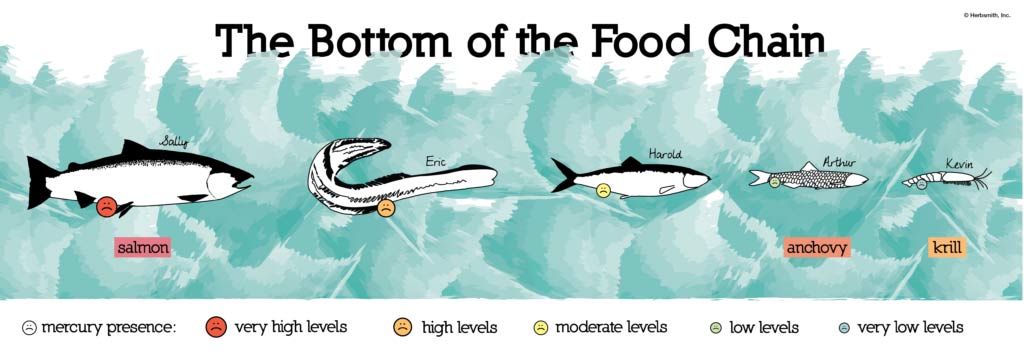
Toxins found in fish can include mercury, arsenic, cadmium, and lead — which are harmful to dogs and cats (any living being, basically) who consume contaminated fish or fish oil. Though there are some promising new oil extraction methods, the conventional methods of fish oil extraction produce oil with toxin levels that are much higher than the acceptable limits. We don’t want our pack eating that high concentration of toxins (we don’t want the salmon to have those toxins at all, for that matter, but that’s a topic for another day).
Okay, but don’t write salmon off completely. All that being said, the benefits of the omega 3s in salmon are still huge, and many scientists believe that the risks of consuming salmon are worth the omega 3 benefits.
Here’s what you can do to make the best choices:
- Rotate omega 3 sources (so use salmon oil only some of the time).
- Consider smaller fish like sardines or crustaceans like krill (more on this in a minute!) because they are more likely to be a cleaner source due to biomagnification.
- Pair with a detoxifier like Milk Thistle.
Sustainability Concerns
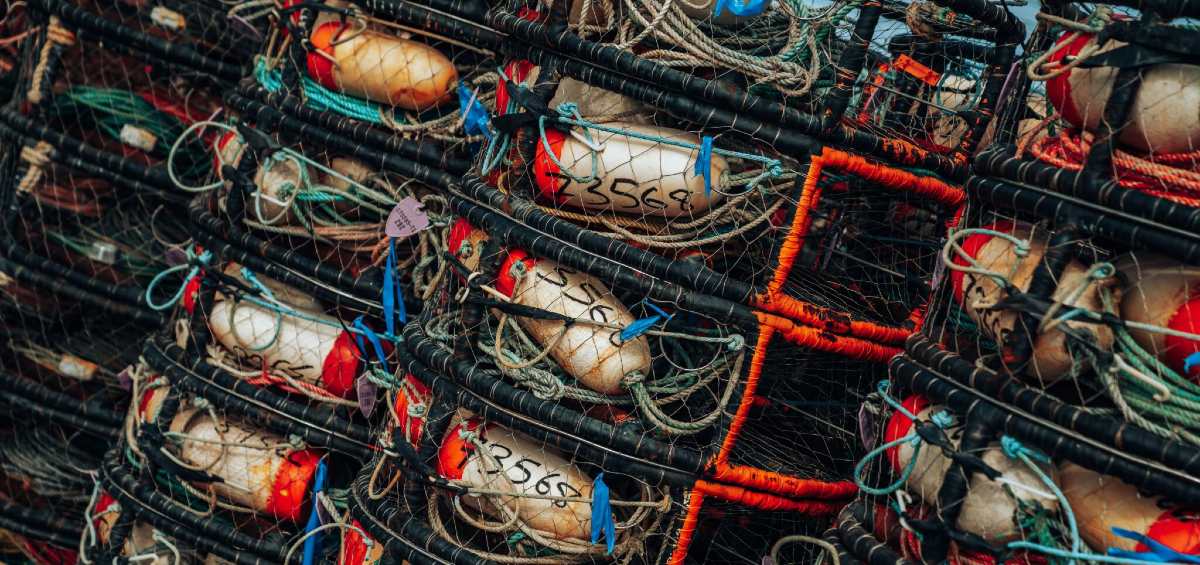
Always be mindful of sustainability when choosing fish oil. Often, fish oil suppliers do not use the necessary care and caution when harvesting, and other marine life can be harmed in the fishing process. Nets, for example, often accidentally catch and kill other wildlife, which is a needless and avoidable loss of life. New technologies like eco-harvesting — the use of an underwater hose that won’t accidentally catch other wildlife — have opened up more responsible ways for us to catch krill (more on krill in a moment…).
Overfishing is also a concern. Taking too much fish from one area can cause some serious disruptions and imbalances for the remaining wildlife. These imbalances can harm and even kill other species in the ecosystem — which is especially devastating for vulnerable species like corals and sea turtles.
It’s vital that we protect and maintain our ocean ecosystems. Look for fisheries that are certified by the Marine Stewardship Council (MSC). The MSC certification ensures that fisheries are operating responsibly with minimal environmental impact.

Make the best choice: only buy from manufacturers that can provide details on their sourcing and from fisheries with a commitment to sustainability.
Dr. Bessent’s Recommendations
Dr. Bessent’s ULTIMATE recommendation for omega 3 to support the entire body is Krill.
Why Krill?
- Krill is packed with omega 3s, which means it will help keep omega 6 balanced.
- Krill are tiny crustaceans low on the food chain, which means a cleaner source (larger fish like salmon that are more likely to contain toxins due to biomagnification).
- Phospholipids in krill deliver omega 3s to where your dog’s body needs them most, making krill the superior choice to salmon or other fish.
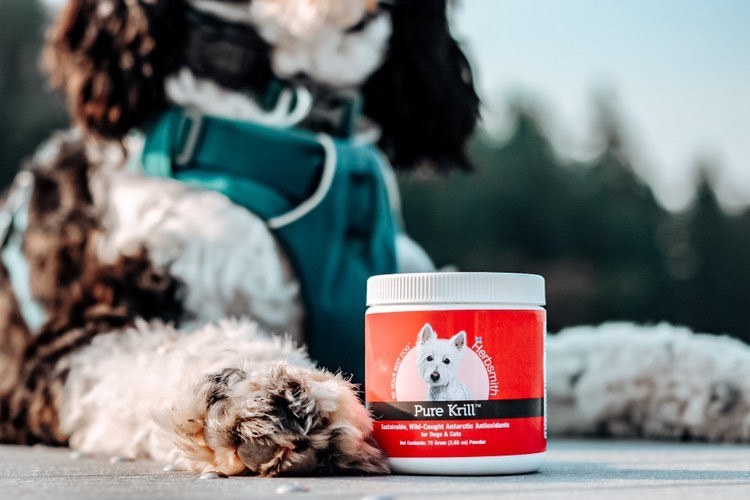
- Krill contains a super powerful antioxidant called astaxanthin.
- Just make sure to avoid krill chews contain loads of inactive ingredients and krill oil which is not the most sustainable option and also goes rancid quickly (causing oxidative stress which negates the positives of the antioxidants).
There are clearly a lot of factors to consider when choosing a source of omega 3s, but the important thing is that you’re adding omega 3s to your dog’s bowl. In doing so, you’re setting your dog up to truly thrive!
Here’s a quick review to help you make the best possible omega 3 choices to help your dog live a long and vibrant life.
Make The Best Omega 3 Choices
- Rotate your omega 3 sources and species, especially when using fish oil.
- When possible, choose the smallest species on the food chain (like krill or anchovy).
- Always choose wild-caught.
- Don’t be afraid to ask the manufacturer questions regarding sourcing.
- Add in whole sources of high-quality fish.
- Pair with a daily detoxifier like Milk Thistle.
Share this Post

Dr. Chris Besent
Chris Bessent, DVM, MSOM, Dipl. OM, L.Ac. has over thirty years of experience in veterinary medicine including certificates in veterinary acupuncture, veterinary chiropractic and veterinary Chinese herbology. Imbued with Eastern philosophy and the knowledge that food is the foundation of health, Dr. Bessent also received her degree in veterinary nutrition and began to formulate recipes fit for a carnivore from nothing but whole foods. Currently, she divides her time between the Simple Food Project and Herbsmith, both of which are owned and operated out of her facilities in southeastern Wisconsin.

Hayley Zablotsky - Writer
Hayley is a freelance writer based in Northern California. (Writing for Herbsmith is her favorite, but don't spread it around.) She enjoys riding horses, taking road trips, and eating grilled cheese sandwiches. Her foster dogs have mixed feelings about the spinach she keeps trying to sneak into their bowls.

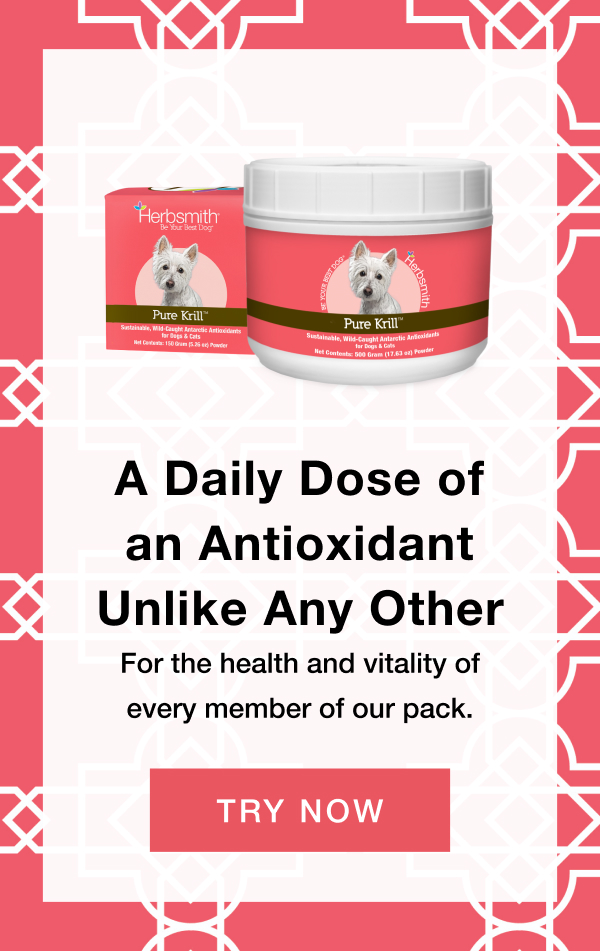


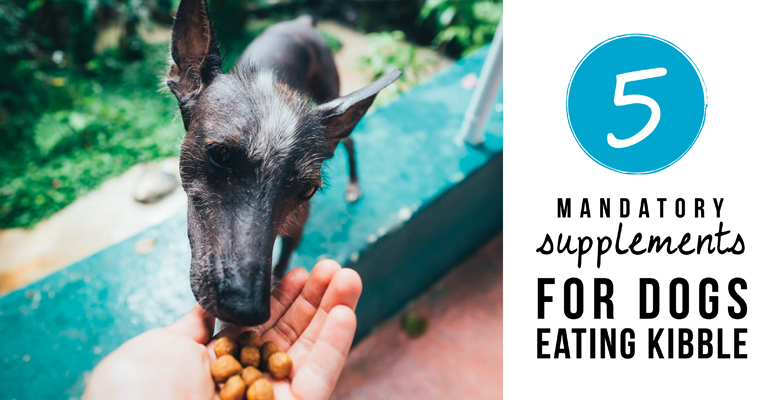
One Response
Thank you for the valuable information regarding the Omega 3’s in krill and anchovies. My older springer is taking two Herbsmith supplements now and I have been very satisfied with the results!
Comments are closed.